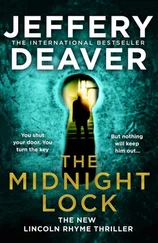“So’s the movie.”
Lepke said, “I’ve heard.”
Which explained a lot.
“I know it was before your time—” As in a generation before. “—but I’m trying to track down any information on the sequel to the book. Is there anybody with the studio who was around then?”
“When?”
“In the sixties.”
A laugh. “Are you kidding? There isn’t anybody who was with the studio in the nineties . Hold on. I’ll IMDB it. Hold on, hold on... Ah ah ah, reading the credits, scanning, scanning... Nope. Most of ’em’re dead. Maybe you could track down a few through the guilds. If you don’t mind old folks’ homes. But, believe me, I really doubt anybody in the cast or crew could help. Nobody’d remember Goodwin.”
“Why do you say that?”
“He was just the writer.” Then Lepke grew coy. “Say, Franklin?”
“Frederick.”
“Did we have an option on the sequel?”
“No. The deal with Cantor Brothers was for Cedar Hills only. No sequel.”
Lepke snapped, “Jesus, what f’ing-pardon-my-French shyster negotiated that against us?”
“My father.”
“Ah ah ah, sorry. Well, good for him.”
Lowell thanked him for his help.
“Oh, Frank? I mean, Frederick?”
“Yes?”
“You find the sequel, gimme a call. Keep us in mind, OK? Shia and Tatum were circling just last week. Looking for props that’ll let ’em do an art turn. This could be just the thing. You’ve got my digits. Ah ah ah, gimme a call.”
That night, Frederick Lowell trudged home from the subway in a sour mood.
He picked up a sandwich for dinner and continued on to his building.
His apartment was modest. It was Second Avenue Upper East, not Fifth Avenue Upper East, and there is, of course, a matter-antimatter difference between the two. On the third floor of a walk-up brownstone, the two-bedroom place was small and dark most of the time, though in the summer it was illuminated by a stunning blast of morning light; the nearby mirrored Trump monolith efficiently reflected sun for a few minutes not long after dawn. Lowell shared the place with a mouse or two — or rather generations of them, since he’d first heard their skittles and huffs ten years ago. He took no measures to discourage them, other than to protect his staples.
The pipes were noisy, the traffic too, the neighbors odd.
Still, he loved it because it had that one quality that was unusual in the city: It was comforting, containing pictures of his late wife, his children and their children, souvenirs they’d collected on their travels, furniture from the home of his youth in Connecticut, framed letters from clients, most of whom he also counted as his friends.
And books, thousands of books.
Comfort.
Tonight, though, as he sat before the small fireplace in his green leather chair, Lowell sighed and waited for the dour mood to dissipate.
No such luck.
He’d changed from his suit into slacks and a starched pale yellow shirt that he might have worn to his office if he ever wore pastels on the job. He sat with a sherry and looked over the letter from the Ridgefield attorney once more.
No clues as to Hudson House. No clues as to idyllic countryside. No clues as to houses of God. No hard evidence of Anderson’s Hope at all.
On a whim he rose, walked to a bookshelf, and pulled down a copy of Cedar Hills Road . He began reading and was instantly captivated by the easy prose, the brilliant expressions and figures of speech that seemed to come so easily to Goodwin. There were dozens of passages that made you think: My God, I’ve felt that way all my life but I’ve never been able to put the sentiment into words. He feels what I feel.
The story defined twentieth-century America. The novel itself defined fiction.
Somewhere during the account of the Andersons’ move to Chicago, Lowell’s head dipped and he dozed off. An hour later, he started awake, his mind dotted with fragments of a vague dream.
As he rose to go to bed, the copy of the novel flipped open to the dedication page.
To the memory of the man who is Zeus in the Olympus of literature, Thomas Wolfe.
Lowell sat down again and reflected: If Wolfe, the brilliant author of Look Homeward, Angel , was Goodwin’s Zeus, then you could say his home, in Asheville, NC, was a house of god.
And few areas of the country are as idyllic as that small town in the southwestern portion of the state.
Is that where Goodwin had gone to get away from Pittsburgh and the grim atmosphere of death row?
Lowell walked to his desk, no longer the least groggy, and typed into Google: “Asheville, North Carolina,” “Hudson House,” “1967.”
Within seconds he had his answer: an article from a local newspaper back then.
The Hudson House Inn just outside of Asheville is a popular resort for people wishing to get away from the bustle of city life. The lovely rooms are appointed with local antiques and many a guest has come away from supper (which can be purchased a la carte or included in the price of a room), convinced he has had one of the South’s finest meals.
Among the guests at Hudson House have been politicians, artists and — not the least — famed writers.
Frederick Lowell found comfort in train travel. He’d looked into an Amtrak journey to Asheville but learned that while the price was right, the duration was not — fourteen hours to get to Spartanburg, which was still an hour away from Asheville by car.
What would Sam Spade do?
A private eye owes allegiance to his assignment, not his personal preference. So Lowell booked a flight and by noon was in the Asheville Public Library, where he spent the better part of the day browsing old newspapers for references to Goodwin — merely a few “spotted on the street” sorts of comments, but at least they confirmed that the author had traveled here.
There were also plenty of tidbits on the Hudson House.
From there he walked up the street to the courthouse and its public records department. He pieced together that the Hudson House Inn had ceased operation during the nineties. A local businessman had bought the dilapidated place, and filed papers to turn it into a museum, though the process, which involved a great deal of fundraising, was moving slowly.
He called the man, Harold Wilkins, who immediately agreed to meet him. Wilkins was excited at the possibility that the inn might have been the site where the sequel to Cedar Hills Road had been written. This would add to the place’s museumability. Wilkins said that, yes, he’d carefully preserved all of the records of the ninety-year history of the place, though they weren’t stored in the unoccupied Hudson House itself; for protection from the humidity of the brutal North Carolina summers, and the risk of fire, they were in Wilkins’s air-conditioned garage.
Twenty minutes later, the lawyer was at the modest brown clapboard house where the Birkenstock-wearing fortyish Wilkins and his wife lived.
Unlike the Siblings, the enthusiastic Wilkins was a proper host, plying Lowell with tea so sweet it took his breath away. Lowell hadn’t known so much sugar could fit into a single glass. They stood in the kitchen, chatting about the museum. Wilkins didn’t much pause to allow the lawyer to speak, going on in his sorghum-thick accent about his plans. “We’ll have a lot more, of course, than the Thomas Wolfe house does, with all respect. We’re including the fire of 1937, the Biltmore, local wine, tobacco, and, of course, the battle of Asheville. April, 1865. Three hundred confederate troops repulsed Union General Isaac Kirby’s one thousand regulars. It was a glorious day.” Then, as if he suddenly realized Lowell was a Yank, he added, “There were only minor casualties.”
Читать дальше
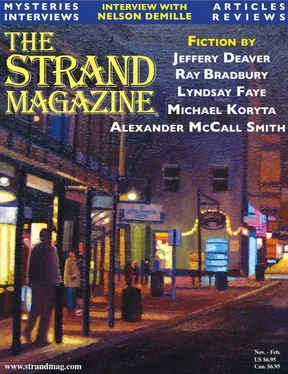
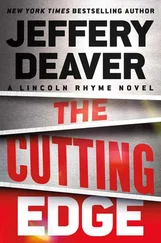





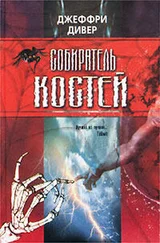
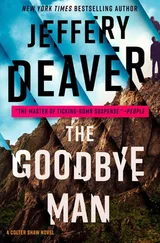
![Джеффри Дивер - Where the Evidence Lies [A Lincoln Rhyme Short Story]](/books/403782/dzheffri-diver-where-the-evidence-lies-a-lincoln-r-thumb.webp)

